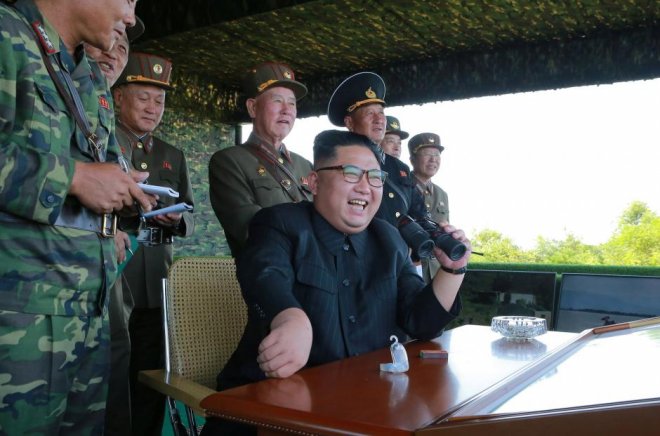
North Korea test fired another missile, the latest among dozens of ballistic missile tests under its leader, Kim Jong Un, in defiance of international sanctions.
The missile launched Wednesday spent around 53 minutes in the air, reaching a height of up to 4,500 kilometers (2,800 miles), before splashing down in waters around 210 kilometers (130 miles) west of Japan's Aomori prefecture, according to authorities in Japan and South Korea.
Despite these repeated actions, investors and analysts were unfazed by the latest provocation.
The benchmark Kospi index opened higher Wednesday morning, gradually climbing as much as 0.4 percent while the won was steady against the dollar at 1,084.15.
Investors are setting aside geopolitical worries and instead focusing on factors such as liquidity, economic data and earnings, analysts said.
Market volatility usually rises, but it ends fast, even when armed conflict erupts. It is often a case of "sell the rumour, buy the news".
Is it different this time? Maybe — but markets move on probabilities, not possibilities. If North Korean Armageddon were probable, would South Korean stocks be up more than 20 percent this year in local currency terms beating overall global stock market performance?
Seoul is in the line of fire. If markets saw the danger as real, South Korea would be down and lagging behind the world.








